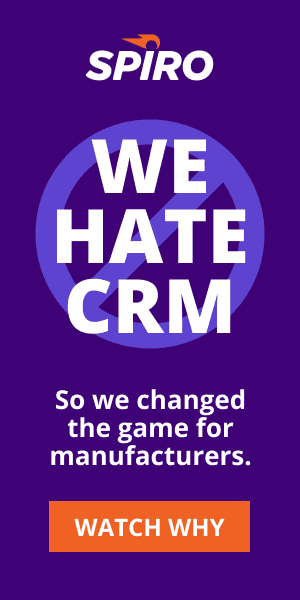5 Unique Ways to Sell an Expensive Product
There are certain things that can separate the best salespeople from the average ones. And other things that can separate even poor salespeople from the ones that are average.
One of those things has to do with selling on price, or more specifically, selling cheap items vs. expensive ones.
For example; even a salesperson who is the absolute worst performer in a company and can’t make a presentation without drooling all over themselves can still sell a product if it’s substantially cheaper than a competitor’s product (assuming that the customer is buying on price alone). But if you are selling high-ticket items, or selling the most expensive offering of your product, you’re unlikely to pull it off without effort, ability, and some creativity.
If you have an expensive product that you need to sell, here are some unique tips that can help you move those big-ticket items:
1. Roll out the red carpet
If you’re going to sell an expensive product, then you need to provide service that’s more than commensurate with that higher price. Someone buying a Rolls-Royce usually has a much more robust and luxurious buying experience than someone buying a Toyota Corolla. When a person is going to pay a higher price, you need to make them feel like they are special – even more special than other customers.
You do this by having a process in place that prioritizes that prospect, by creating supporting collateral that reflects the value justified by the higher price point, and by setting yourself apart from others in your market as best as possible. Treat people the same way you’d want to be treated if you were going to spend that much money.
2. Discuss the competition openly
Discussing competing products shouldn’t feel taboo, especially when you’re at the higher end of the market. It’s important to understand what other options your prospect is comparing you to, as well as where you currently stand in relation to those options. Be direct and ask which other vendors they’re considering, and where in the process they are with those vendors.
At a higher price point, your product likely has differentiating features that people are paying more money for, so make sure the prospect understands how those features are going to benefit them and why they support that higher price point. Similarly, make sure a significantly cheaper option isn’t being unfairly compared to your pricier option by positioning your product as a significantly more robust value-add.
3. Learn everything you can about the prospect’s buying history
Make sure to find out everything you can about what your prospect and decision-makers have purchased in the past. There are two reasons for this.
One: you’ll want to know whether your prospect has experience spending money on higher-priced products. If they do, this is a good sign for you and increases your likelihood of closing the deal. If not, you might have more of an uphill battle, but at least you’ll know the obstacles to overcome.
Two: if you know what your prospect has bought before, you can ask them to tell you how lower-priced options have let them down before (tactfully, of course). This will help you position your product as an option that, while more expensive, will help them avoid the frustrations and disappointments they experienced before.
4. Have enthusiastic references ready
Having advocates for your product is always a smart move, especially at the higher end of the pricing scale. Many organizations are cautious when it comes to making big purchases, rightfully so. This is when having references for the higher priced product can come in handy.
Find someone who is a huge fan of your product and have them agree to be a reference for you. This can be anything from a written testimonial to a recorded video. But ideally, they will also be willing to hop on a call with one of your prospects to vouch for you and your company. There is nothing quite as powerful as a first-person testimonial.
5. Have a champion
This usually only applies when selling to an organization, but it’s absolutely critical to have a champion pushing for you within an organization. This is someone who believes in your product (or in you) and wants his or her company to adopt your offering. Not only does this provide you with what is essentially a salesperson within the place you’re trying to sell, but it can also allow you to find out information about the process that can be critical to closing the deal.
So if you’re trying to sell a higher priced product, make sure to roll out the red carpet, have references and champions, understand the prospect’s means and buying history, and be ready to discuss your competition.

